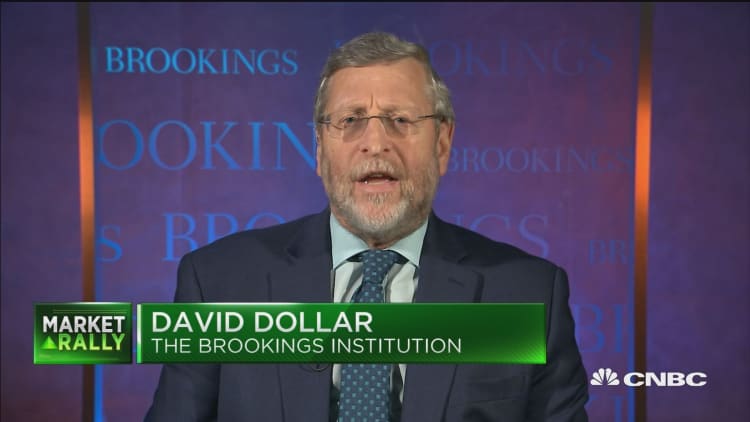China has made several moves to stimulate its slowing economy, but those measures are not yet enough to help the Asian economic giant weather risks that it's facing, according to J.P. Morgan Asset Management.
"I do think China's economy warrants a little more aggressive easing than the government's come through so far," Hannah Anderson, global market strategist at J.P. Morgan Asset Management, told CNBC's "Capital Connection" on Monday.
Her comments came after the central bank in the world's second-largest economy — the People's Bank of China — announced Friday it will cut the amount of reserves that banks are required to hold by 1 percentage point this month. That's the first such move in 2019 and the fifth in a year by the PBOC.
Earlier in December, the PBOC introduced a new tool — the targeted medium-term lending facility — to encourage commercial banks to give out more loans to smaller firms. The government has also said it would step up other policy support, such as infrastructure spending and tax cuts.
Those announcements came as more signs pointed to slowing growth momentum in China. The country also faces mounting pressure from additional American tariffs as trade tensions with the U.S. continued to linger.

But the suite of measures by the central bank so far is "not adding that much liquidity into the market in China," Anderson noted, referring to the amount of funds available for spending and investment. "So, we should expect further easing ahead," she added, without specifying the exact measures China would potentially take to stimulate its economy.
Anderson is not the only one with such views. Mark Williams, chief Asia economist at research firm Capital Economics, wrote in a note that China's next possible "major step" is a cut to benchmark lending rates.
"We suspect the next major step that is not broadly anticipated will be a cut to benchmark lending rates," Williams wrote last week.
"For all that though, no one should be expecting a rapid improvement in the economy ... Given the downward pressures the economy is facing, we're expecting stimulus only to arrest the slowdown in growth, probably around the middle of the year, but not to drive a significant rebound," he added.


